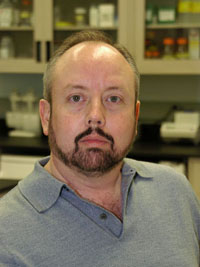Dr. Henry Markram has modeled a million neurons and a billion synapses since launching The Blue Brain Project six years ago, he said in a recent interview in Science. His ultimate goal is to create a detailed supercomputer model of the brain complete with every last pathway. The first step, the Switzerland based neuroscientist and longtime MBF Bioscience customer says, is to develop an automated...
Read More
MBF Bioscience News
Using Neurolucida, microscopy, and mice genetically engineered to express a random amount of red, yellow, and blue fluorescent proteins, Okinawa Institute of Science and Technology researcher Hermina Nedelescu has created a fascinating and hypnotic movie of neurons. Nedelescu and colleagues at the Institute's Computational Neuroscience Unit used Neurolucida and its Virtual Tissue 3D Extension Module and Montaging tools to acquire and stitch together multiple images of Purkinje cells—large neurons that...
Read MoreA willowy pair of pyramidal cells engage in an intricate dance with a dense mass of basket cells on the cover of the September 14, 2011 issue of the Journal of Neuroscience. This exquisite image illustrates recent work by Columbia University researchers Dr. Adam M. Packer and Dr. Rafael Yuste, who used Neurolucida to study circuit connectivity in the mammalian neocortex. According to the paper "Successfully filled...
Read MoreHelmet, neck roll, shoulder pads, thigh pads, knee pads, mouth guard...
Read MoreNo two trees are exactly alike, in the forest or in the brain. Though despite the diversity of dendritic arborizations, when it comes to branching out different types of neurons do have a couple things in common, say researchers at the National Institute for Physiological Sciences in Okazaki, Japan. Led by longtime MBF Bioscience customer Dr. Yoshiyuki Kubota, the research team identified two organizational principles common...
Read More[caption id="attachment_1338" align="alignleft" width="150" caption="Dr. William Seeley"][/caption] MBF Bioscience congratulates our customer Dr. William Seeley on his 2011 MacArthur Foundation Fellows award. Dr. Seeley is an Associate Professor of Neurology at the University of California San Francisco Memory and Aging Center. His research area is regional vulnerability in dementia—why certain dementias attack specific neurons. Dr. Seeley leads the Selective Vulnerability Research Lab at USSF. Read about the John D....
Read MoreMBF Bioscience congratulates our friend and collaborator Dr. Patrick Hof for his appointment as the new editor-in-chief of The Journal of Comparative Neurology. Dr. Hof is the Irving and Dorothy Regenstreif Professor of Neuroscience and the Vice-Chair of the Department of Neuroscience at Mount Sinai School of Medicine in New York. He also directs the Center of Excellence on Brain Aging of the Friedman Brain...
Read More Talk of zebrafish and Spaceballs probes make Dr. Daniel Peterson’s microscopy and stereology courses sound intriguing. But Dr. Peterson says it’s the hands-on instruction that students enjoy most about the biannual workshops he teaches in Chicago. From August 15-19, 2011, the Associate Professor and Executive Director at the Center for Stem Cell and Regenerative Medicine at The Rosalind Franklin University of Medicine and Science, welcomes students to Chicago’s Club Quarters for five days of instruction on all aspects of state-of-the-art microscopy, stereology, and histological analysis.
Talk of zebrafish and Spaceballs probes make Dr. Daniel Peterson’s microscopy and stereology courses sound intriguing. But Dr. Peterson says it’s the hands-on instruction that students enjoy most about the biannual workshops he teaches in Chicago. From August 15-19, 2011, the Associate Professor and Executive Director at the Center for Stem Cell and Regenerative Medicine at The Rosalind Franklin University of Medicine and Science, welcomes students to Chicago’s Club Quarters for five days of instruction on all aspects of state-of-the-art microscopy, stereology, and histological analysis.
He spoke to us about the atmosphere in the classroom, what kinds of students take his course, and what aspects of the workshops participants get most excited about.
Read MoreJourneying along axons, microscopic powerhouses known as mitochondria provide cells with the energy they need to function. When something goes wrong with the axonal transport and mitochondria isn't delivered, the system fails, and the cell body dies. Scientists in the Department of Anatomy and Neurobiology at the Washington University School of Medicine in St. Louis study the cellular bases of neurological disorders. Their recent research focuses...
Read MoreDr. Edward G. “Ted” Jones, distinguished neuroscientist died Monday 6 June 2011 at the age of 72. Dr. Jones collapsed while talking with colleagues at a scientific meeting at the Ronald Reagan UCLA Medical Center. He suffered sudden cardiac death. Jack Glasser, president of MBF Bioscience said, “Ted was an outstanding neuroanatomist. Among many of his accomplishments, his work on brainmaps.org was a great contribution to...
Read More






